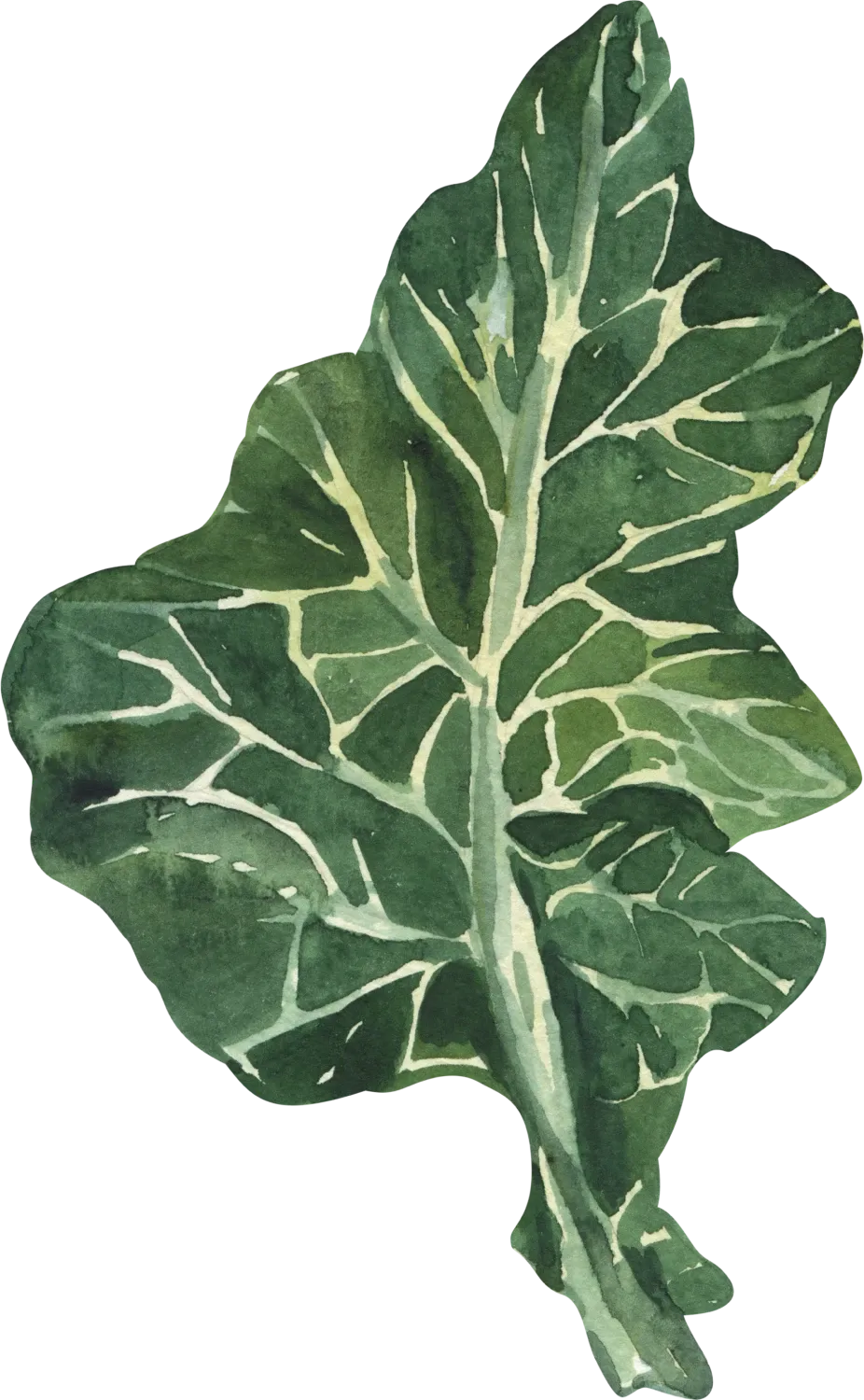The Nutritional Benefits of Collard Greens: A Southern Staple with Superfood Status
Introduction
Collard greens are a leafy green vegetable commonly associated with Southern cuisine, but their health benefits make them a superfood for everyone. Rich in vitamins, minerals, and fiber, collard greens support various aspects of health, from digestion to heart health.
Health Benefits of Collard Greens
- Promotes Bone Health
Collard greens are loaded with vitamin K, which plays a vital role in bone health by aiding in calcium absorption.
- Supports Digestion
High in fiber, collard greens help regulate digestion and support a healthy gut microbiome.
- Rich in Antioxidants
Collard greens contain powerful antioxidants like vitamin C and beta-carotene, which help reduce inflammation and protect against chronic diseases.
- Boosts Heart Health
The fiber and potassium in collard greens support heart health by helping to lower cholesterol and regulate blood pressure.
Creative Ways to Enjoy Collard Greens
- Sautéed: Sauté collard greens with garlic, olive oil, and a splash of lemon for a simple side dish.
- In Smoothies: Add collard greens to smoothies for a nutrient boost without altering the flavor.
- In Stews: Collard greens hold up well in stews and soups, adding texture and nutrition.
- Wraps: Use large collard green leaves as a low-carb alternative to wraps.
FAQs About Collard Greens
- Are collard greens good for weight loss?
Yes, collard greens are low in calories and high in fiber, making them a great choice for weight management. The fiber content helps keep you full longer, reducing the likelihood of overeating.
- How should I store collard greens?
Store collard greens in the refrigerator, wrapped in a damp cloth or plastic bag. They will stay fresh for up to a week.
- Do collard greens lose nutrients when cooked?
Collard greens retain most of their nutrients when lightly steamed or sautéed. However, boiling them for too long may reduce their vitamin C content.
- Are collard greens AIP diet compliant?
Yes, collard greens are compliant with the Autoimmune Protocol (AIP) diet and can be enjoyed by those following this protocol.
- Are collard greens Low-FODMAP?
Yes, collard greens are considered Low-FODMAP and are safe for individuals with IBS or digestive sensitivities.
- Are collard greens Low Histamine?
Yes, collard greens are generally low in histamine and are well-tolerated by people with histamine intolerance.
- Are collard greens Keto-friendly?
Yes, collard greens are keto-friendly, with only 6g of carbohydrates per 100g serving, making them an excellent choice for a low-carb diet.
Recipes
Check out our meal planning service by following these recipes:
Brazilian Style Collard Greens









